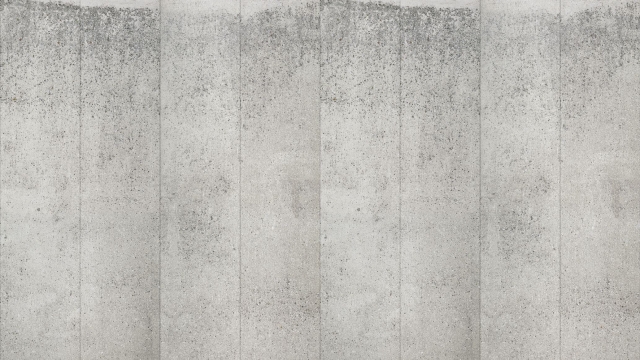Breaking the Chains of Addiction: A Journey towards Freedom
Introduction:
Welcome to the empowering world of drug and alcohol rehabilitation, where individuals navigate the intricate path towards liberation from the clutches of addiction. Astonishingly, countless lives have been transformed by the relentless pursuit of a brighter future, proving that hope and determination are formidable allies in the battle against substance abuse. In this comprehensive guide, we delve into the depths of drug rehabilitation, unravelling the key principles, strategies, and tools that will pave the way towards recovery and a life brimming with newfound freedom. Whether you or a loved one are seeking guidance on this transformative journey, rest assured that you’re not alone. Let us embark on this expedition of hope, resilience, and ultimate victory together.
Recognizing the Signs of Addiction
Addiction can take hold of a person’s life without them even realizing it. It is important to be able to recognize the signs of addiction in yourself or in others in order to take the first step towards recovery. Here are some key indicators that may suggest the presence of addiction:
Physical and Behavioral Changes: One of the first signs of addiction is a noticeable change in physical appearance or behavior. This can include sudden weight loss or gain, bloodshot eyes, slurred speech, tremors, or unexplained changes in mood or personality. If you or someone you know is experiencing these symptoms, it could be a sign of addiction.
Loss of Control: Addiction often leads to a loss of control over one’s own actions. This can manifest as an inability to stop using drugs or alcohol despite negative consequences, such as relationship problems, health issues, or legal troubles. If you find yourself constantly seeking out the substance, even when it puts you in danger, it could be a sign of addiction.

Withdrawal Symptoms: When someone is addicted, they may experience physical withdrawal symptoms when they try to stop using the substance. These symptoms can vary depending on the drug but often include nausea, shaking, sweating, insomnia, or anxiety. If you or someone you know experiences these symptoms when attempting to quit, it could be a sign of addiction.
Recognizing these signs is crucial in order to intervene early and seek appropriate help and treatment. Addiction is a complex issue, but with awareness and support, it is possible to break free from its chains and embark on a journey towards freedom and recovery.
Choosing the Right Rehabilitation Program
When it comes to choosing the right rehabilitation program for yourself or a loved one, there are a few key factors to consider. One of the most important aspects is to find a program that specializes in drug rehabilitation. These programs are specifically designed to address the unique challenges and complexities associated with addiction to drugs. By opting for a drug rehabilitation program, individuals can receive targeted and tailored treatment that focuses on their specific needs.
Alongside drug rehabilitation, it is also crucial to seek out an alcohol rehabilitation program if alcohol addiction is a concern. Alcohol abuse can have severe consequences on an individual’s physical and mental well-being, and it requires specialized treatment to overcome. Look for a rehabilitation program that offers comprehensive care for both drug and alcohol addiction. This way, you or your loved one can access the specific support and resources needed to break free from the chains of addiction.
Furthermore, it’s crucial to consider the specific approaches and methodologies employed by different rehabilitation programs. Some programs follow a traditional 12-step model, which focuses on abstinence and group therapy. Others may utilize alternative or holistic approaches that incorporate activities like art therapy, yoga, or mindfulness meditation. A comprehensive drug rehabilitation guide will outline the various treatment options available and help you make an informed decision based on your individual preferences and needs.
Remember, choosing the right rehabilitation program is a critical step towards reclaiming your life and achieving long-term recovery. Take the time to carefully research and evaluate different programs, considering their specialization in drug rehabilitation, the inclusion of alcohol rehabilitation services, and the treatment approaches they offer. By making an informed choice, you increase your chances of finding a rehabilitation program that is well-suited to assist you on your journey towards freedom from addiction.
Building a Supportive and Sober Lifestyle
In order to break free from the chains of addiction, building a supportive and sober lifestyle is crucial. By making positive changes and surrounding oneself with a strong support system, individuals can greatly increase their chances of successful drug rehabilitation.
First and foremost, it is important to distance oneself from negative influences and environments that may trigger cravings or temptations. This may involve cutting ties with individuals who still participate in drug or alcohol abuse, and avoiding places or events that revolve around substance use.
Rehabs In Mumbai
Creating a new routine and engaging in healthy activities is another essential step towards a supportive and sober lifestyle. By replacing old habits with new ones, individuals can find healthy outlets for their time and energy. This could include participating in exercise, pursuing hobbies or interests, and seeking out new friendships or support groups that have similar goals of sobriety.
Lastly, building a strong support network is key during the journey towards freedom from addiction. Surrounding oneself with understanding and empathetic individuals who provide encouragement and accountability can make a significant difference. Support groups, therapy sessions, and connecting with friends and family who are committed to the recovery process can all contribute to a positive and supportive environment.
In conclusion, breaking free from addiction requires creating a supportive and sober lifestyle. By removing negative influences, engaging in a new routine and healthy activities, and building a strong support network, individuals can pave the way towards a fulfilling and addiction-free life.



